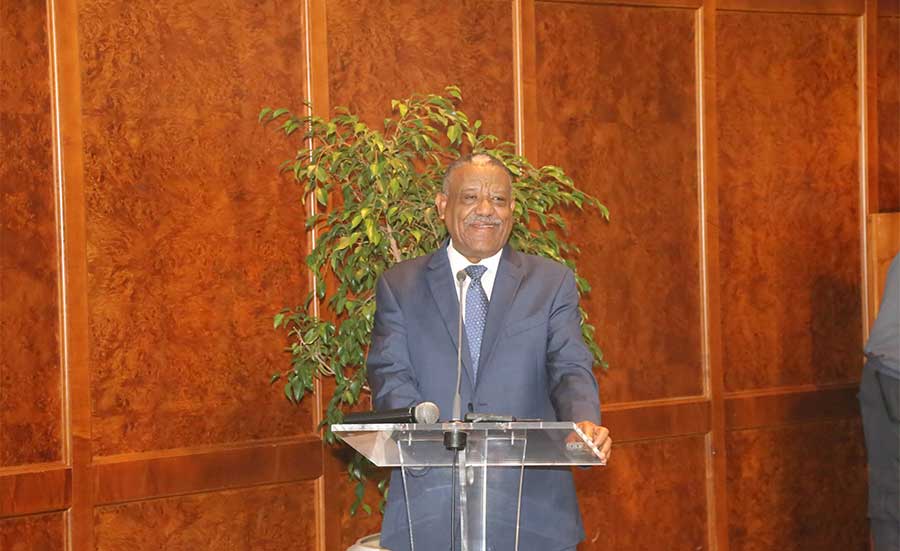
Fortune News | Dec 13,2021
Apr 10 , 2021
By Eden Sahle
A few days ago, a friend told me an unnerving story – highly illustrative of Ethiopia's situation. A fourteen-year-old girl went to the house of her mother’s employers. The mother worked there as a housekeeper. When she was not around, the daughter started talking about politics and said inappropriate things about an ethnic group she believed should be retaliated against. Little did she know that the employers were from that same ethnic group.
Where will it stop?
This lethal mindset is what is burying the country in hate, socio-political devastation, and long-lasting poverty. This is the evil that the nation needs to get rid of if its people are to live in peace and achieve development. There is an old analogy: if one trips three times on the same stone, then the “stone” is that person.
Is it not the nation's problem of hitting the same rock over and again? Is it not a refusal to learn a lesson?
If society, despite its leaders, keeps getting into wars, then the problem must be society. Those who tell us everything will suddenly be fine while fellow citizens continue to perish need to accept realities and imagine themselves in the shoes of victims and their grieving families.
Our obstacle as a country is widespread, persistent denial. The nation's politics and society can get better by merely learning from its devastating political history. What we have is a political class that promised to have all the answers, led us into the mess we are in, and still insists that if this or that element was “removed,” all will be fine.
It is important to admit national failures, that our input into the political discourse may have played a negative role, and work to coexist. Coming to terms with reality – that we are all at fault - and working on a compromise that allows us to coexist should be the goal. The finger-pointing has gone on for at least over a century. It is about time we learn that it is not helping much.
The many years spent in wars, more than the lives lost, have also meant crippling poverty reigned in the country. There are no surprises here. On nearly every indicator of economic development, Ethiopia finds itself near the bottom – with other conflict-blighted countries. The two go together. Armed conflict does not just create stagnation but leads to regression.
No country is perfect. What makes a difference is how society reacts to the imperfection prevalent in it. This fundamental choice makes all the difference in how much transformation we can make to a country that continues to be world-renowned for all the wrong reasons.
Every day we are alive, each individual is in a perfect position to help build a society that makes a difference in people’s lives and the country's future. When a part of the country is “burning,” no one is safe as the flame will eventually erupt everywhere and destroy everything in its path. No one should lose touch with this essential reality.
It is when we can all stand up for the rights and freedoms of others – no matter their worldview, religion or language – that we can have peace of mind. None of us can live in security – at least not in our conscious minds – when people across the country are killed indiscriminately.
This will not bring back those that left us in the most tragic of ways, but it would help us stop the bloodletting that each generation seems destined to go through. We may not see it, but better days can come if only we are willing to sympathise with the cause of one another.
PUBLISHED ON
Apr 10,2021 [ VOL
22 , NO
1093]

Fortune News | Dec 13,2021

Fortune News | Apr 25,2020

Fortune News | Feb 08,2020

Fortune News | May 09,2020

Radar | Jul 29,2023

Photo Gallery | 175517 Views | May 06,2019

Photo Gallery | 165736 Views | Apr 26,2019

Photo Gallery | 156094 Views | Oct 06,2021

My Opinion | 136828 Views | Aug 14,2021

Dec 22 , 2024 . By TIZITA SHEWAFERAW
Charged with transforming colossal state-owned enterprises into modern and competitiv...

Aug 18 , 2024 . By AKSAH ITALO
Although predictable Yonas Zerihun's job in the ride-hailing service is not immune to...

Jul 28 , 2024 . By TIZITA SHEWAFERAW
Unhabitual, perhaps too many, Samuel Gebreyohannes, 38, used to occasionally enjoy a couple of beers at breakfast. However, he recently swit...

Jul 13 , 2024 . By AKSAH ITALO
Investors who rely on tractors, trucks, and field vehicles for commuting, transporting commodities, and f...

Oct 18 , 2025
The political establishment, notably the ruling party and its top brass, has become p...

Oct 11 , 2025
Ladislas Farago, a roving Associated Press (AP) correspondent, arrived in Ethiopia in...

Oct 4 , 2025
Eyob Tekalegn (PhD) had been in the Governor's chair for only weeks when, on Septembe...

Sep 27 , 2025
Four years into an experiment with “shock therapy” in education, the national moo...

Oct 18 , 2025 . By NAHOM AYELE
In a sweeping reform that upends nearly a decade of uniform health insurance contribu...

Oct 18 , 2025 . By BEZAWIT HULUAGER
A bill that could transform the nutritional state sits in a limbo, even as the countr...

Oct 18 , 2025 . By SURAFEL MULUGETA
A long-planned directive to curb carbon emissions from fossil-fuel-powered vehicles h...

Oct 18 , 2025 . By BEZAWIT HULUAGER
Transaction advisors working with companies that hold over a quarter of a billion Bir...